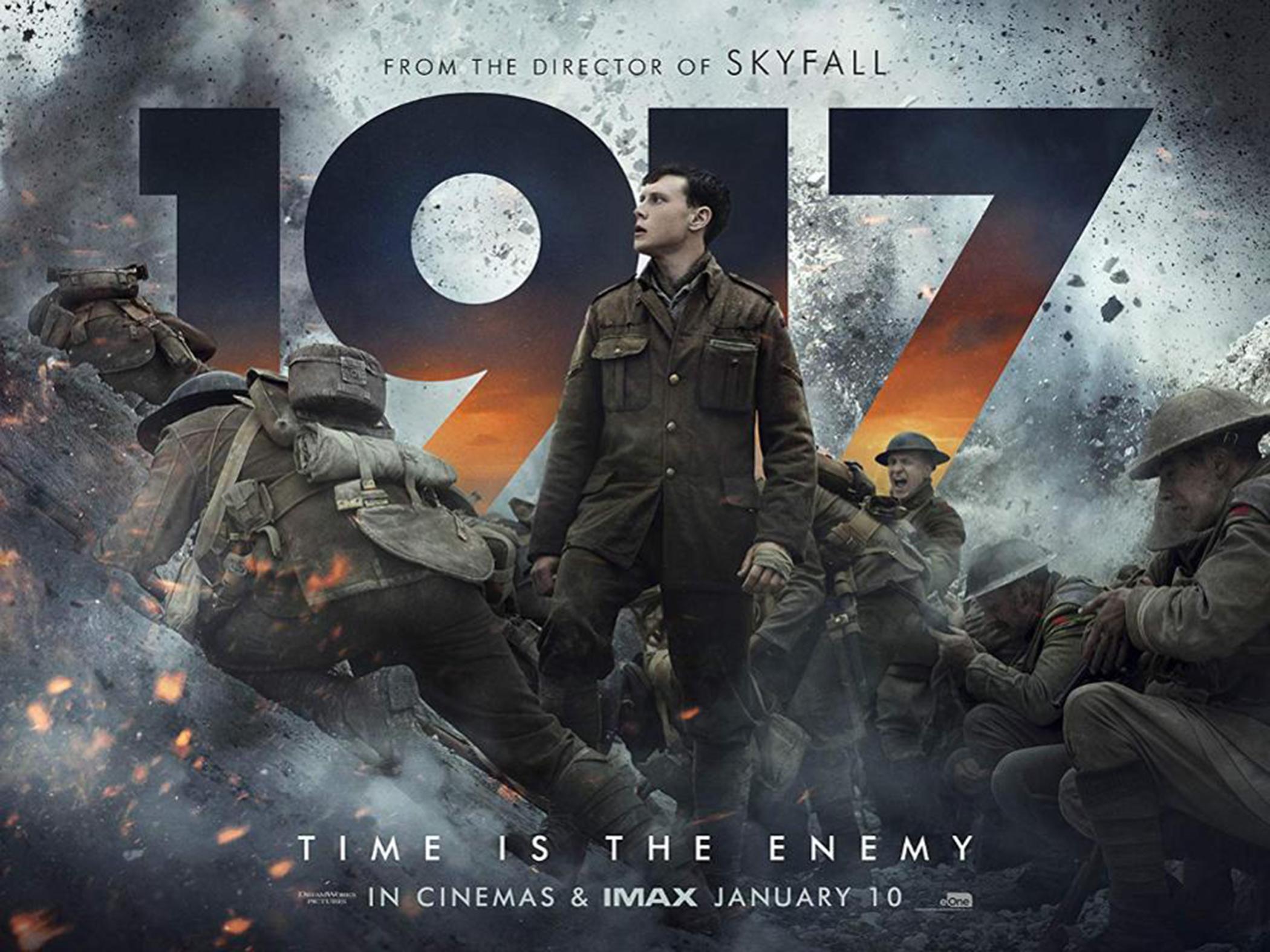An extraordinary technical accomplishment, “1917” offers a profound consideration of the thoughtless carnage but also the great feats of bravery seen in WWI.
Director Sam Mendes (“American Beauty,” “Road to Perdition,” “Skyfall”) adapted the plot from stories told by his grandfather Alfred Mendes, who enlisted in the British army at 19 years old and was once sent across the battlefield to deliver a message.
The film begins peacefully, in April 1917, with the view of a beautiful field of flowers in northern France. The camera pulls back to show some weary British soldiers. Lance Corporal Tom Blake is given orders to come to the command center. He picks the soldier beside him, Lance Corporal Will Scolfield to join him.
The two young men receive from General Erinmore a simple—and suicidal—mission. The Germans have retreated from their line but aerial reconnaissance has discovered it’s a trap. A British battalion of 1,600 men will be slain unless the two corporals succeed in crossing no-mans’ land with the general’s message to stand back.
And so the plot is established very, very rapidly. Two men risk their lives to save hundreds of lives.
From WWI films, documentaries, and history books, you can already imagine the muddy trenches, the weary soldiers, the dead and decaying bodies of men and horses, and enormous rats.
Mendes makes the viewer see these horrors with new eyes by presenting the film in the form of a single take. Unlike most movies and TV shows, the camera doesn’t switch from one character and then to the other but follows them in real-time. When Blake and Scolfield walk, the camera walks in front of them and then pivots to follow them or run along with them.
As a result of this technique, you feel as if you are a direct witness to their mission. You see the trenches and the carnage as they see it. You do not know what peril waits around a corner. I was truly on the edge of my seat for most of the film.
Fortunately, Mendes created a film that is much more than a digital gimmick. First of all, the scenes are stitched together in such a seamless fashion that I soon stopped trying to look for breaks. The actual set design is fantastic, looking historic without being stiff. All the muddy horror of trench warfare is also on display with shocking and surprising details that frame the danger of the mission. While famous actors like Colin Firth and Benedict Cumberbatch bring star power as the senior officers, the film rests firmly on the excellent work of the lesser-known leads Denis Charles Chapman and George MacKay as lance corporals Blake and Scofield.
Most importantly, Mendes has something to say in “1917.” While underscoring how WWI brought about tragic losses of life, the film highlights how the war sparked incredible acts of bravery built on friendship, self-sacrifice, and the hope for peace. Listen as a soldier sings “Wayfaring Stranger.” Watch for a long handshake between two soldiers. And look for the startling images of flowers, the promises of peace.
One disadvantage of the film’s framework is that it can’t and doesn’t present the motivations or perspective of the German troops. Also, it falls into some common war movie tropes. Most of the British officers are shown as selfish despots, while the enlisted men enjoy camaraderie and do all the hard work. And a beautiful French woman, who knows the right amount of English, is there at the right time to shelter a British soldier. And fortunately for the film’s hero, the Germans are particularly bad shots.
Those critiques aside, I highly recommend “1917”—a film to be seen and appreciated in a cinema. (Universal)
About the Author
Otto Selles teaches French at Calvin College, Grand Rapids, Mich., and attends Neland Avenue Christian Reformed Church in Grand Rapids.

